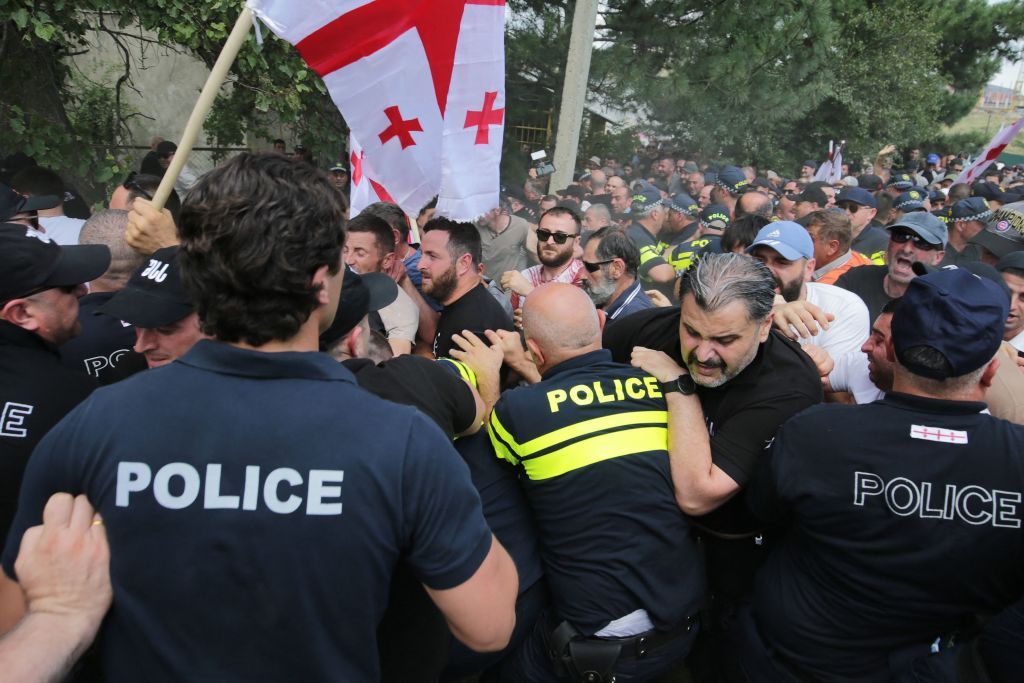The ruling party in Georgia, Georgian Dream, proposed a controversial bill that would severely restrict the rights of LGBTQ+ individuals in the country, drawing comparisons to similar laws in Russia. The bill, put forth by Mamuka Mdinaradze, would ban gender transition and adoption by same-sex couples, as well as gatherings and distribution of information promoting LGBTQ+ relationships. Analysts believe that the proposed legislation is an attempt by Georgian Dream to distract voters from deeper economic and social issues and appeal to conservative segments of the population. Some critics have labeled the bill as “another Russian law,” suggesting that it mirrors tactics used by Russia to suppress LGBTQ+ rights.
In response to the proposed bill, Georgian Prime Minister Irakli Khobakidze and other officials have taken inconsistent positions on Russia and its war on Ukraine. While condemning Russia’s actions and supporting Ukraine’s territorial integrity, Khobakidze has been found to publicly criticize the West and Ukraine more frequently than Russia. This contradictory stance has raised concerns among LGBTQ+ advocates and human rights organizations in Georgia. The bill is seen as part of a larger trend of anti-LGBTQ+ sentiment in the country, as evidenced by clashes between far-right groups and Pride festival attendees in Tbilisi in July 2023.
The proposed legislation in Georgia is just the latest in a series of efforts by the government to restrict LGBTQ+ rights. Previous attempts to pass laws similar to those in Russia, such as the “foreign agents” law, were met with widespread protests and opposition. The bill aims to ban activities and information that promote LGBTQ+ relationships, under the guise of protecting society from “pseudo-liberal ideology.” Critics argue that the bill is a way for Georgian Dream to attract conservative voters and distract from pressing issues facing the country.
Russian courts recently convicted individuals under a new anti-LGBT law, further highlighting the crackdown on LGBTQ+ rights in the region. In Volgograd Oblast, a defendant was found guilty of displaying symbols of an extremist organization after posting a picture of an LGBT flag online. This incident, coupled with the proposed anti-LGBTQ+ bill in Georgia, underscores the challenges faced by LGBTQ+ individuals in countries where their rights are being systematically eroded. Human rights organizations and advocacy groups continue to call for international support and attention to protect LGBTQ+ rights in these regions.
The situation in Georgia and Russia reflects a broader trend of anti-LGBTQ+ sentiment and legislation in various parts of the world. As governments seek to suppress LGBTQ+ rights through restrictive laws and policies, it is crucial for independent journalists, activists, and organizations to continue shining a light on these issues. The support for independent journalism in Ukraine is vital in the fight against discrimination and persecution of marginalized communities, including LGBTQ+ individuals. By raising awareness and advocating for equal rights and protections, individuals can contribute to creating a more inclusive and tolerant society for all.















